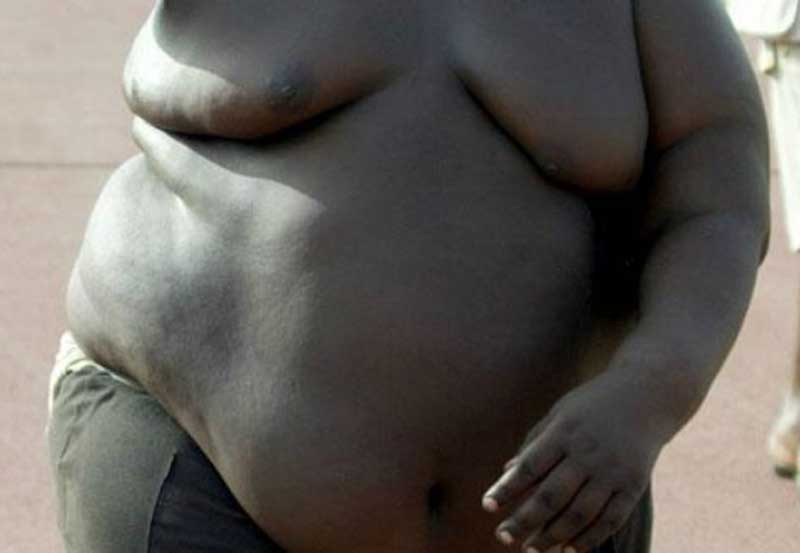
Obese and overweight people are a mark of growing wealth, especially among Nairobi residents living in poor estates.
Once the economic status of many city residents starts to improve, a recent study shows, they also start to gain weight, a phenomenon most pronounced in women.
Such entrants into the 'doing well club' are likely to move from 'mulika mwizi' handsets to smartphones; from walking to riding taxis or even owning cars.
They are likely to move to a bigger house with more rooms, get a refrigerator and satellite TV, and use gas or electricity to cook.
At the same time, their diet starts to change to reflect the new economic status - replacing foods such as kale and whole grains with meat and other protein-rich products.
The new kitchen will be characterised by beef, chicken, processed foods, eggs, commercial breakfast cereals and alcohol.
The new study suggests that as this is happening, the house occupants, especially the women, are putting on weight.
The researchers from the Nairobi-based African Population and Health Research Center (APHRC) and China's Tianjin University say this is the point at which promoters of good health should intervene.
The study concludes that wealth, at least among Kibera slum residents, is contributing to obesity and overweight people, a view that is no news to many Kenyans.
The study validates the commonly-held view in the village that the size of the girth is a sign of how well (or not) relatives are fairing in the city; the leaner, the harder the times while a larger waistline signifies prosperity.
Published in the journal Global Health, Epidemiology and Genomics on June 2, 2018, the study also adds a new dimension to the obesity debate, especially on women in Africa.
An earlier study by APHRC among 2,669 men and 2,265 women in Nairobi to gauge their preferred body size found big bodies to be more fashionable.
Half of the women said a large body size reflected good health and higher social status. This was admired and hence desirable.
This perception has largely been blamed on African men said to be driving an agenda that female beauty is characterised by big and curvacious. But the new study suggests wealth may be to blame for the runaway obesity in both men and women.
The current study involved 2,003 adults aged 40 to 60 living in Kibera. The participants were categorised into five groups by wealth - very poor, poor, medium, rich and very rich.
“The prevalence of obesity increased from 10 per cent in the ?rst wealth quintile to 26.2 per cent in the ?fth wealth quintile.”
Educated residents
The research found better educated residents of Kibera were more likely to be wealthier as well as overweight or obese compared to poorer residents. This was also reflected in the general public mainly in poor countries.
“Those with more wealth may have better access to high-calorie diet and at the same time could have higher chances of engaging in paid work that involves more sitting.”
Being poor, the study suggests, is likely to protect one from obesity and being overweight in poor countries. However in high-income countries, the opposite is true with the poorest likely to be obese compared to the wealthier. [www.rocketscience.co.ke]
 The Standard Group Plc is a multi-media organization with investments in media
platforms spanning newspaper print
operations, television, radio broadcasting, digital and online services. The
Standard Group is recognized as a
leading multi-media house in Kenya with a key influence in matters of national
and international interest.
The Standard Group Plc is a multi-media organization with investments in media
platforms spanning newspaper print
operations, television, radio broadcasting, digital and online services. The
Standard Group is recognized as a
leading multi-media house in Kenya with a key influence in matters of national
and international interest.











